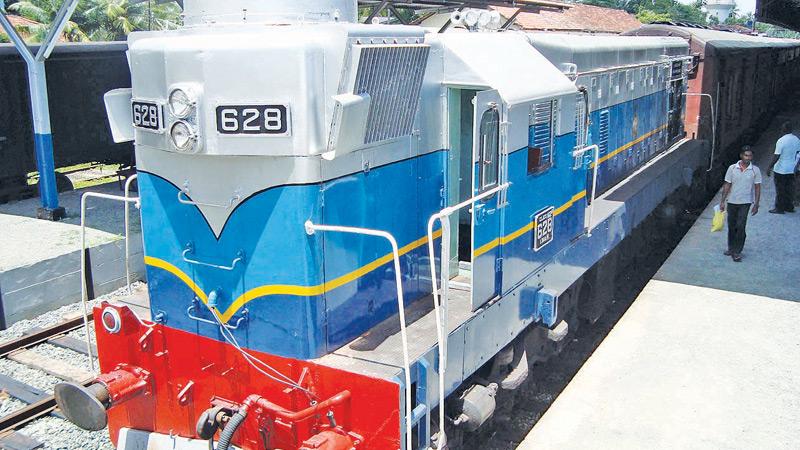
Using modern technology is the solution for the many ills, including the habitual trade union strikes in the railway sector which cripples the functioning of many sectors across the country, General Manager Railways M.J.D. Fernando said in an interview with the Business Observer last week.
 Sri Lanka Railways has failed to keep pace with the rapid changes in transportation technology that has transformed transportation across the globe. The railway sector has drawn heavy flak for being sluggish in adopting new technology and addressing its many persisting woes even after 71 years of independence.
Sri Lanka Railways has failed to keep pace with the rapid changes in transportation technology that has transformed transportation across the globe. The railway sector has drawn heavy flak for being sluggish in adopting new technology and addressing its many persisting woes even after 71 years of independence.
A nearly two-week strike by railway trade unions which brought transportation to a virtual halt was called off mid last week hoping that there would be a satisfactory outcome in the discussions scheduled to take place between the unions and the National Salaries and Cadre Commission during the week.
The strike was called off following discussions between trade unions and President Maithripala Sirisena early in the week. Railway trade unions launched an indefinite strike last month demanding a rectification in the salary anomalies.
All railway trade unions, including railway guards, railway engine drivers, railway controllers, station masters and railway supervisory managers struck work.
While assuring relief to those who travel long distances using season tickets, the railway general manager said the railways incur a loss in subsidising the season ticket fare.
“Deploying military personnel to operate trains during railway strikes is not a viable solution. Using untrained personnel to carry out a task that needs skills will have disastrous consequences,” Fernando said, adding that deploying railway assistants is neither a remedy as the limited number of personnel will stifle operations of other sectors.
The railway has come under heavy criticism for failing to ensure an uninterrupted operation during trade union action which burdens commuters depending on trains for transportation.
The loss of every man hour has a ripple effect on production resulting in an enormous loss to the economy. Many industries across the country, especially those export oriented had to forgo orders and pay demurrage for the delay in delivery.
“We cannot take decisions at the expense of risking the lives of the people by handing over the running of trains to unskilled drivers. There is no uniformity in the signals system. The system on the Northern line is different from the other lines while certain railway stations have the signal switch installed inside the station. We could not operate the Matara line because there is no central system,” the Railways General Manager said, adding that the system has to be changed and upgraded using modern technology.
According to the General Manager, there is no proper communication system for the railway. The system used in the past has been defunct for the past two years. The overhauling of archaic systems in the railways is long overdue. However, transition has not taken place due to political and bureaucratic dilly dallying for years.
Plans are also afoot to improve the operation of trains according to a time table which is a major lapse in the widely used transportation mode in the country.
Trains not running on schedule and regular technical glitches causing undue delays have contributed to the number of unproductive hours in work places. However, according to the Railway General Manager, there is a liver lining in the railways with plans to streamline operations of trains using GPS and AI (Artificial Intelligence) with funding from the Asian Development Bank and commence the issue of online tickets enabling commuters to purchase tickets from wending machines in super markets.
“After the verdict of the Appeal Court is known, the online ticketing system could commence,” Fernando said, adding that work on the 10-years strategic plan to modernise the railway network is in progress with plans to import 12 engines from the USA to ply up-country.” Fernando said that the number of long distance trains will be increased.
The railway network introduced by the British in 1864 to transport tea and coffee from the hill country to Colombo transports passengers and freight. However, today, it is a passenger transporter with around 6.0 percent market share. The railway operates about 396 trains including 67 long distance and 16 intercity trains and carries over 400,000 passengers daily.
